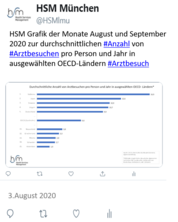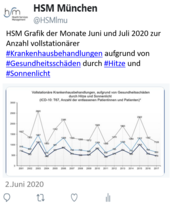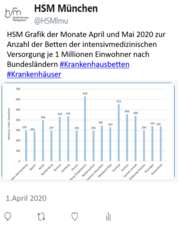Size and type of frequent use of ambulatory medical care among the elderly population in Germany: a study based on statutory health insurance data
| Authors/Editors: |
van den Bussche, H Kaduszkiewicz, H Niemann, D Schäfer, I Koller, D. Hansen, H Scherer, M Wegscheider, K Glaeske, G Schön, G |
|---|---|
| Publication Date: | 2013 |
| Type of Publication: | Articles in Refereed Journals (National) |
| ISBN/ISSN: | 1865-9217 |
| erschienen in: | Z. Evid. Fortbild. Qual. Gesundhwes |
| Weitere Quellenangabe: | Volume 89(2), Pages 34-39 |
Summary
Background
The authors report the results of a study on frequent attenders in ambulatory medical care among elderly people in Germany and on the factors related to frequent attendance such as age, sex, multi-morbidity and long-term care dependency.
Methods
The study was based on claims data of all policy holders aged 65 and over of a statutory health insurance company operating nationwide in Germany in 2004 (n = 123,224). Utilisation was analysed by the number of contacts with practices of physicians working in the ambulatory medical care sector and by the number of different practices contacted. The criteria for frequent attendance included greater than or equal to 50 contacts and/or greater than or equal to 10 different practices contacted and/or greater than or equal to 3 practices of the same discipline contacted within one year. Descriptive statistical analysis and logistic regression were used.
Results
19% of the elderly were identified as frequent attenders, which corresponds to some 3.5 million people in Germany. Two main types of frequent attendance were identified: one is characterised by very many contacts, old age, frequent presence of multi-morbidity, and/or long-term care dependency. The other type is the younger, less frequently multi-morbid attender who is considerably less often dependent on long-term care, and characterised by large numbers of contacted practices and/or practices of the same discipline.





